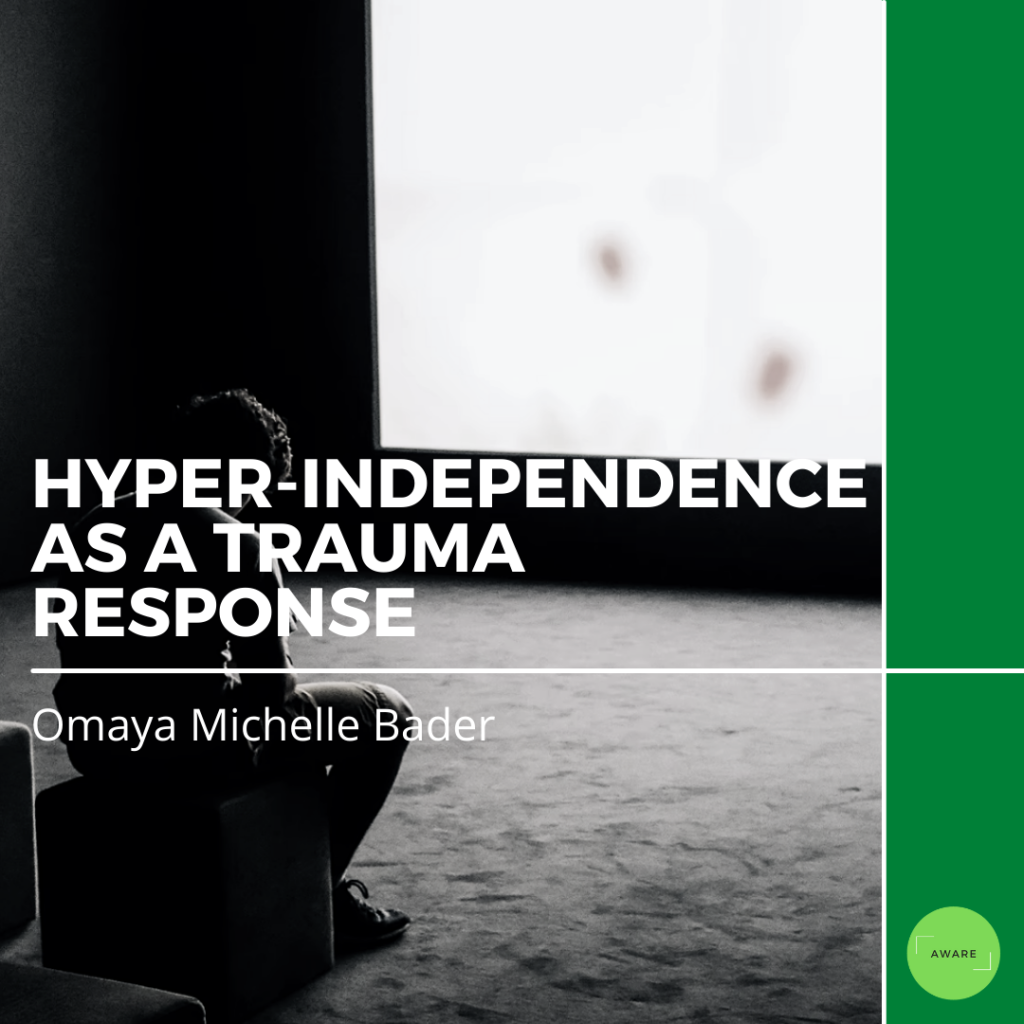How do you define independence? Throughout our lives, many of us strive for the ability to be independent and have the liberality to live our lives without having someone stand in our way. Be it a parent or guardian, an authoritative figure at work, or sometimes even a partner, many of us tend to strive for some form of freedom. Growing up in a more conservative part of the world such as the MENA region, it is not unlikely that you see many young adults hope for this sense of independence when going off to university and venturing into their own paths in life. Additionally, with any individual, it is not uncommon to see traits of hyper-independence when leaving a toxic relationship or a dreadful job. Nonetheless, through and through, we, as a society, strive for independence as the trait within itself is deemed as an achievement. So, when does it become a problem?
What is Hyper-independence?
Hyper-independence is when the strength of independence is nullified by the complete inability to depend on others. Hyper-independence can often be a trauma response to past experiences such as toxic relationships – be it due to an unaccepting household and/or family members, a relationship with a partner, or an overpowering boss at a previous job. The consequences of hyper-independence could lead to social isolation which, when chronic, can lead to many other physical and mental illnesses.
Hyper-Independence as a Trauma Response
According to The Power Scope, “acting as if you have got everything under control, all of the time, often comes directly as a result of not wanting to ask for help out of fear of being perceived as weak.” As mentioned, hyper-independence can often be a trauma response to past experiences. More often than not, those past experiences may occur in one specific setting such as at home, work, school, or in our social or love lives. When experiencing control in traumatic events or situations, these individuals begin to develop a fear of asking for help in their daily lives, which can ultimately result in hyper-independence – even situations in which they feel that they must become hyper-independent, in most cases, do not even realize it until extreme symptoms begin to immerge.
The Symptoms of Hyper-Independence
The symptoms of hyper-independence customarily tend to appear when an individual is dismissed or decides to leave said unhealthy situation and begins to venture out on their own terms. So, how can you tell when your newly profound sense of independence starts to become unhealthy? Below are the symptoms that tend to appear when an individual begins to become hyper-independent –
- Difficulty trusting others
- Overworking
- Feelings of shame when asking for help
- Not delegating tasks
- Making impulsive decisions
- Fear of long-term relationships
- Dislike towards needy people
- Feelings of wanting to cause harm to yourself and/or others
- Substance abuse
So, yes, independence is great to a healthy extent but can be detrimental when a person becomes so independent that they fail to ask for help when they really need it. If you know someone experiencing the above symptoms it is important to refer them to a psychologist in order to discuss their feelings and work towards a healthier future.
